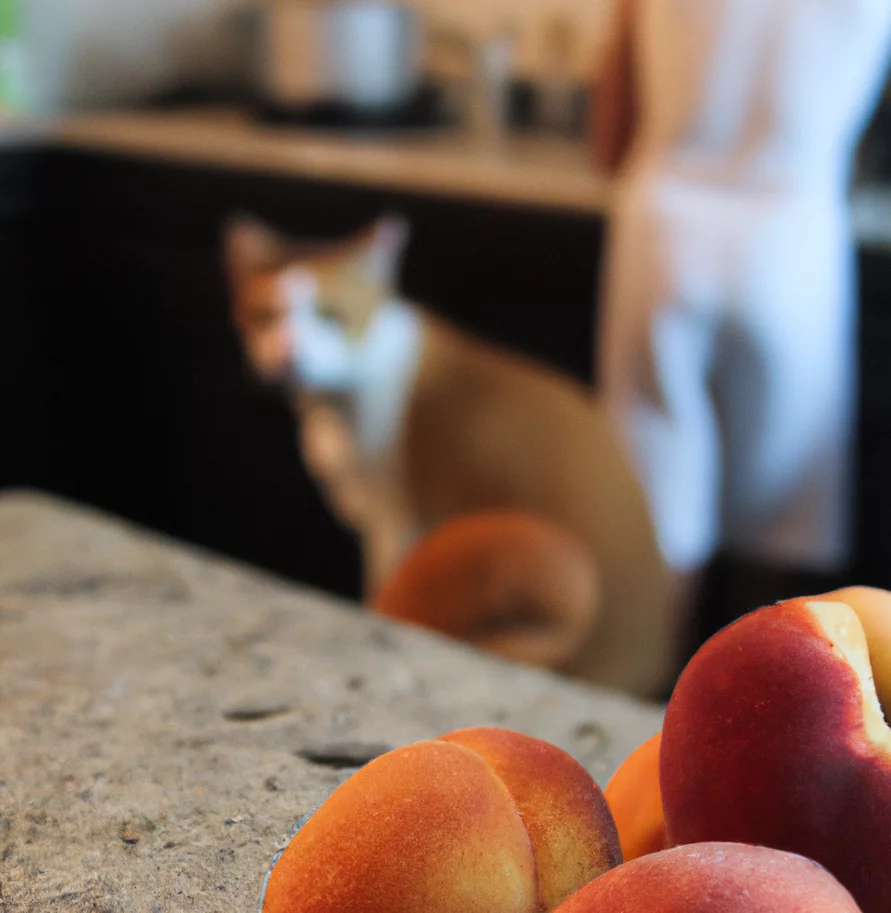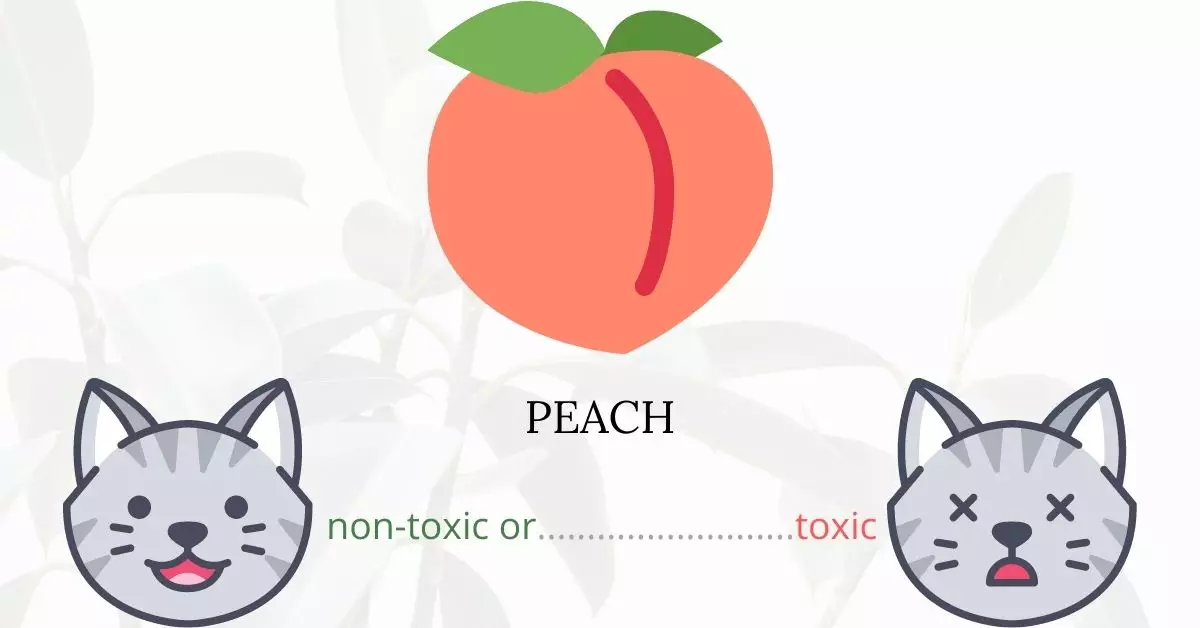Peaches, a staple in many households, pose a potential risk to our feline friends. To answer the title question directly: the flesh of peaches is generally safe for cats, but it’s important to note that while some cats may consume it without issue, others might experience gastrointestinal discomfort. The true danger lies in the leaves, stems, and pits of the peach, as they contain cyanide and are highly toxic to cats, other animals, and even humans.
This article has been crafted in collaboration with a team of experienced DVMs (doctors of veterinary medicine). Their invaluable insights and expertise allow us to present accurate and up-to-date information on the risks associated with peaches and their potential effects on cats. Furthermore, our research is bolstered by data from high-authority websites such as ASPCA and PetMD to ensure a comprehensive understanding of the topic at hand.
Amygdalin, a sugar-cyanide complex, is found in the stems, leaves, and seeds (pits, kernels) of peaches. This can be broken down into cyanide, which is extremely deadly. The withering leaves of a peach tree are extremely poisonous. Peach pits that are left lying around the house and are likely to become toys for cats might become crushed and consumed, posing a choking hazard or cyanide toxicity risk. Peach pits or kernels are also sometimes turned into oils and sold as home cures. This oil can be absorbed via your cat’s skin and cause a serious poisonous reaction.
Clinical Signs of Peach Poisoning in Cats

Cyanide, present in the leaves, stems, and pits of peach trees, is a potent toxin that impedes the proper oxygenation of tissues, leading to a myriad of serious health concerns. When a cat comes into contact with, ingests, or even merely smells parts of the peach plant containing this toxin, it can manifest a range of clinical signs. Here’s a breakdown of the symptoms and their underlying causes:
- Loss of Appetite: The presence of cyanide can disrupt a cat’s digestive system, making them less inclined to eat due to nausea or discomfort.
- Abdominal Pain: The toxin can irritate the lining of the gastrointestinal tract, leading to pain and cramping.
- Vomiting and Diarrhea: As a result of gastrointestinal irritation, the cat’s body may try to expel the toxic substance, leading to vomiting and diarrhea.
- Drooling: Cyanide-induced nausea can cause excessive salivation or drooling.
- Convulsions: The disruption of oxygen delivery to the brain can trigger neurological symptoms like convulsions.
- Coma and Depressed Central Nervous System Functioning: In severe cases, reduced oxygen to the brain can lead to a depressed state of consciousness or even coma.
- Dilated Pupils: Neurological impairment from cyanide can also cause the pupils to dilate.
- Tremors: Another neurological manifestation due to oxygen deprivation in the brain.
- Cardiac Arrest: Cyanide can disrupt the heart’s ability to function, leading to a potential sudden stop in heart activity.
- Bright Red Gums and Mucous Membranes: The reduced ability of the blood to carry oxygen can lead to a bright red appearance of the gums and mucous membranes.
- Respiratory Distress: As the body struggles with limited oxygen, the respiratory system may become compromised, leading to difficulty breathing.
- Lethargy: A general sense of weakness and lack of energy can ensue as the body grapples with the toxin’s effects.
Awareness of these signs is essential for early detection and intervention, as prompt veterinary care can make a difference in the outcome for affected cats.
First Aid and Treatment of Peach Poisoning in Cats

Vomiting may be induced if the ingestion of peach was recent; however, due to the risk of obstruction from peach pit fragments, this may not be a viable option. Typically, supportive therapy is used to treat toxic peach plant ingestion. Your veterinarian will administer oxygen therapy to treat respiratory distress, intravenous fluids to treat dehydration, and medications that may be effective for poisoning treatment.
Recovery from Peach Poisoning in Cats

Unfortunately, due to the significant toxicity of peachtree chemicals, the prognosis for a cat suffering from peach toxicity is dismal. The organ damage that occurs to the cat could be permanent. If your cat survives peach chemical poisoning, organ damage will almost certainly necessitate continued specific food considerations, medicine, and veterinary care.
Prevention of Peach Poisoning in Cats
Dispose pits and peels of peaches properly to ensure that your cat will not have access to it. If a peachtree is known to be growing in you rarea, it is best to keep your cat safe inside your home. This will reduce the possibility of poisoning incidents.
If you love plants but have cats at home, check out these lists:





